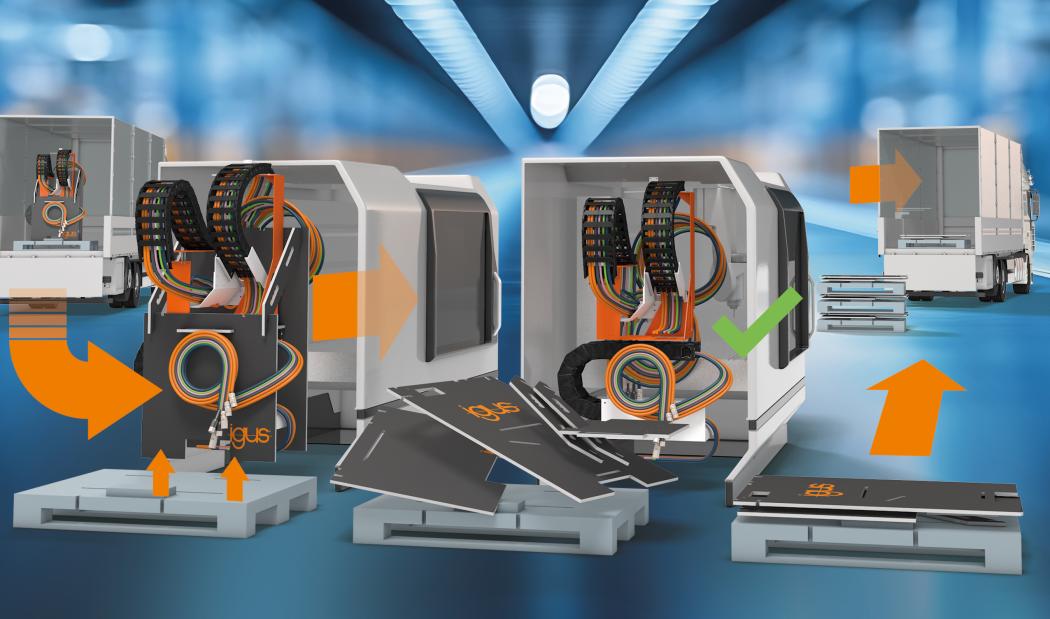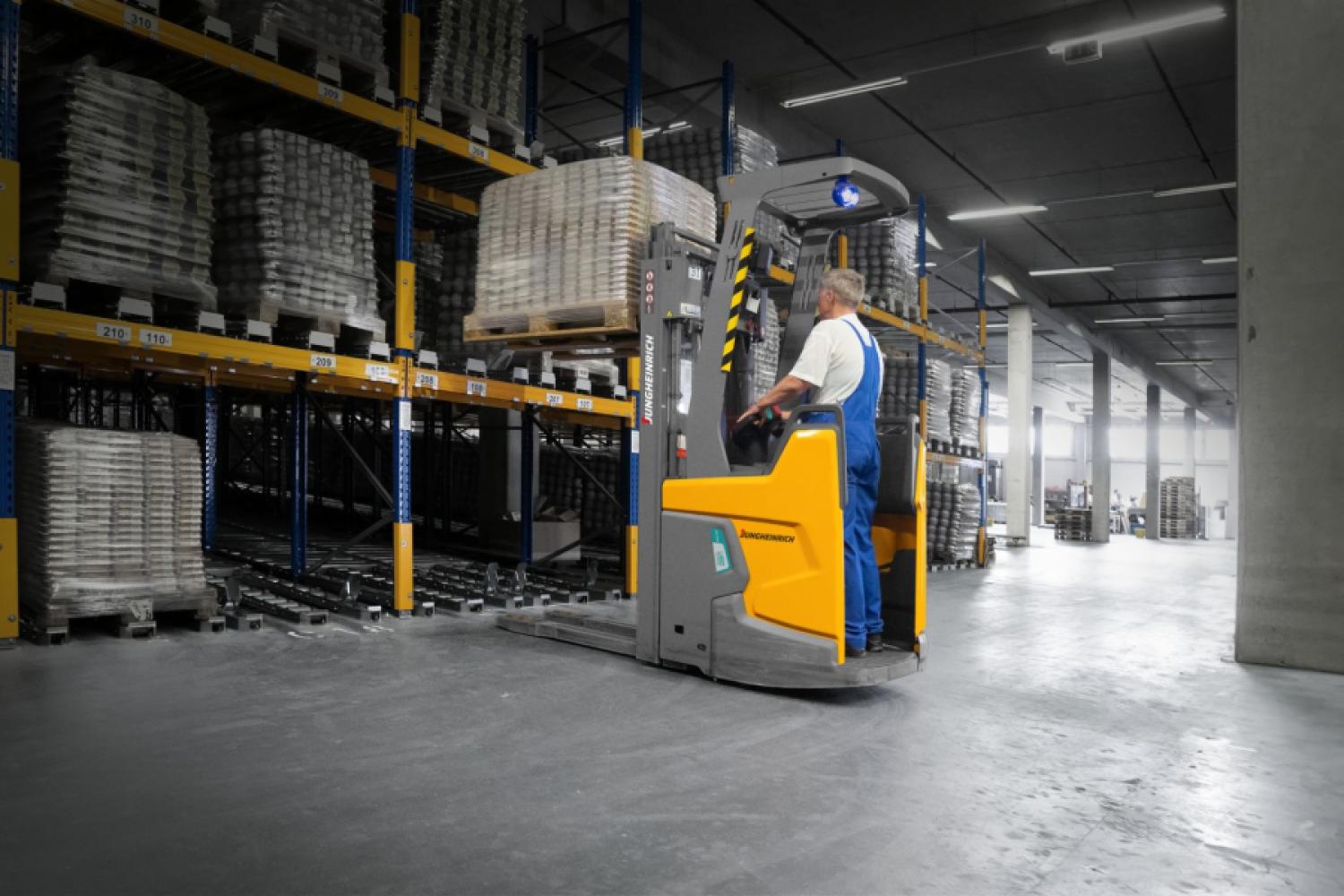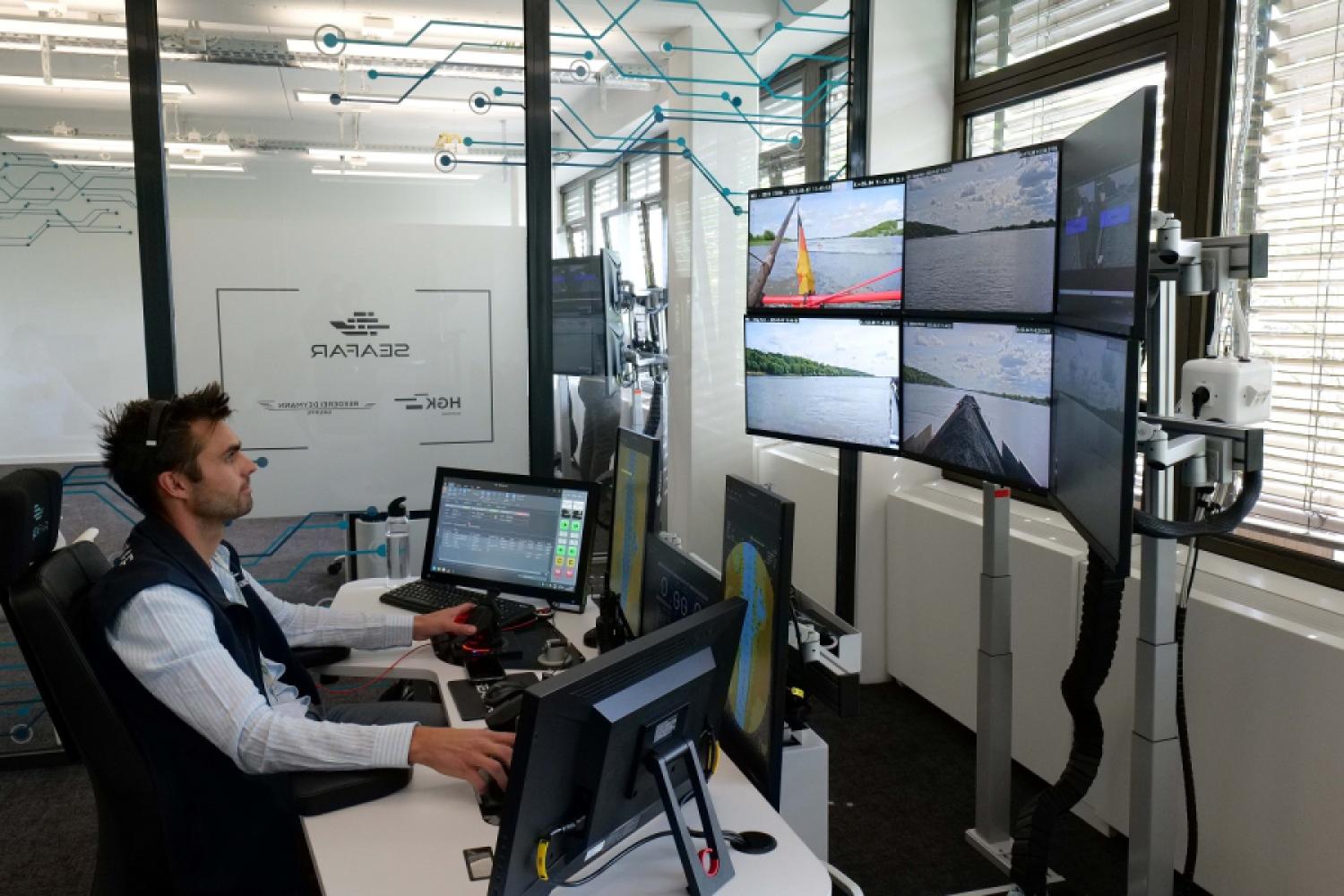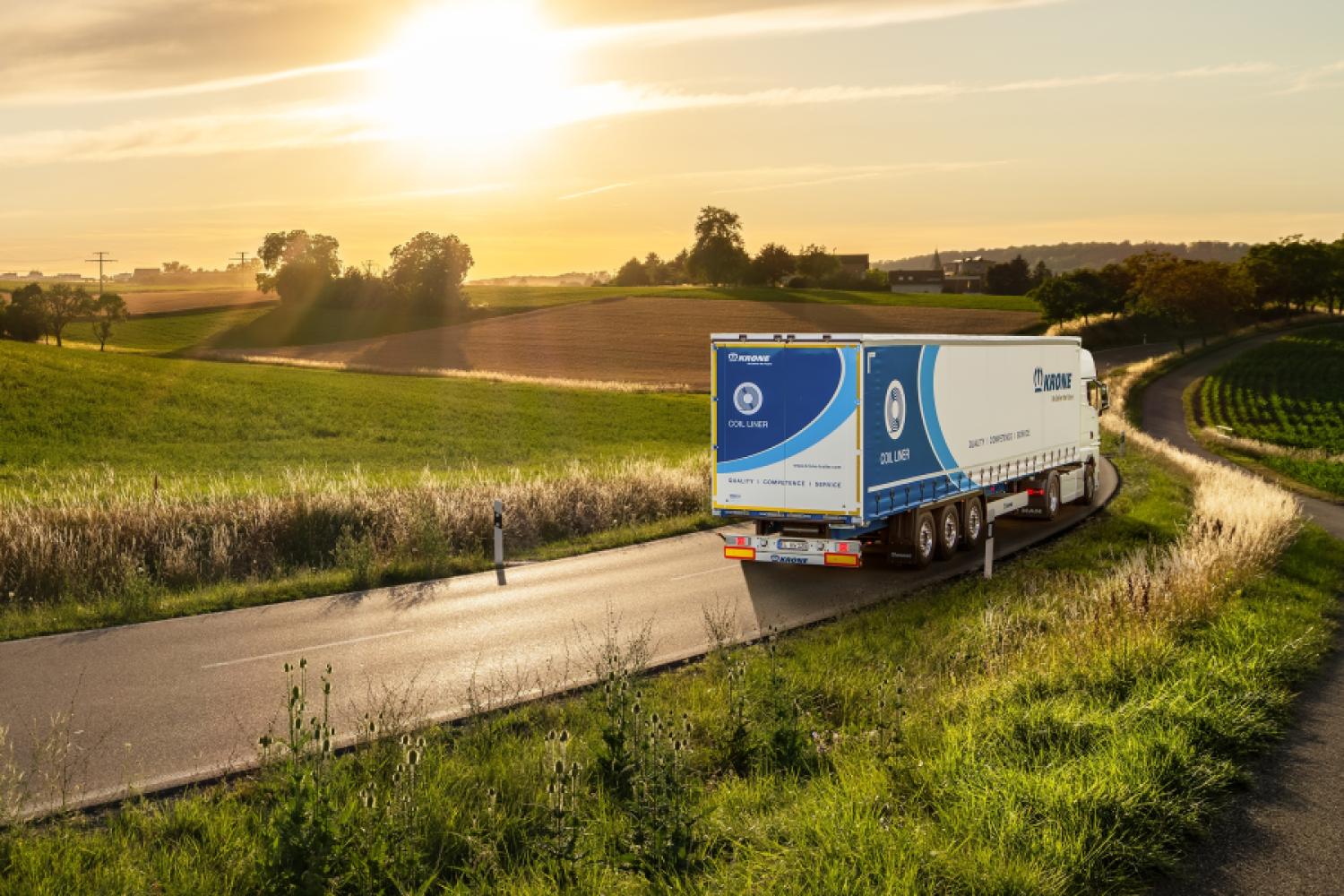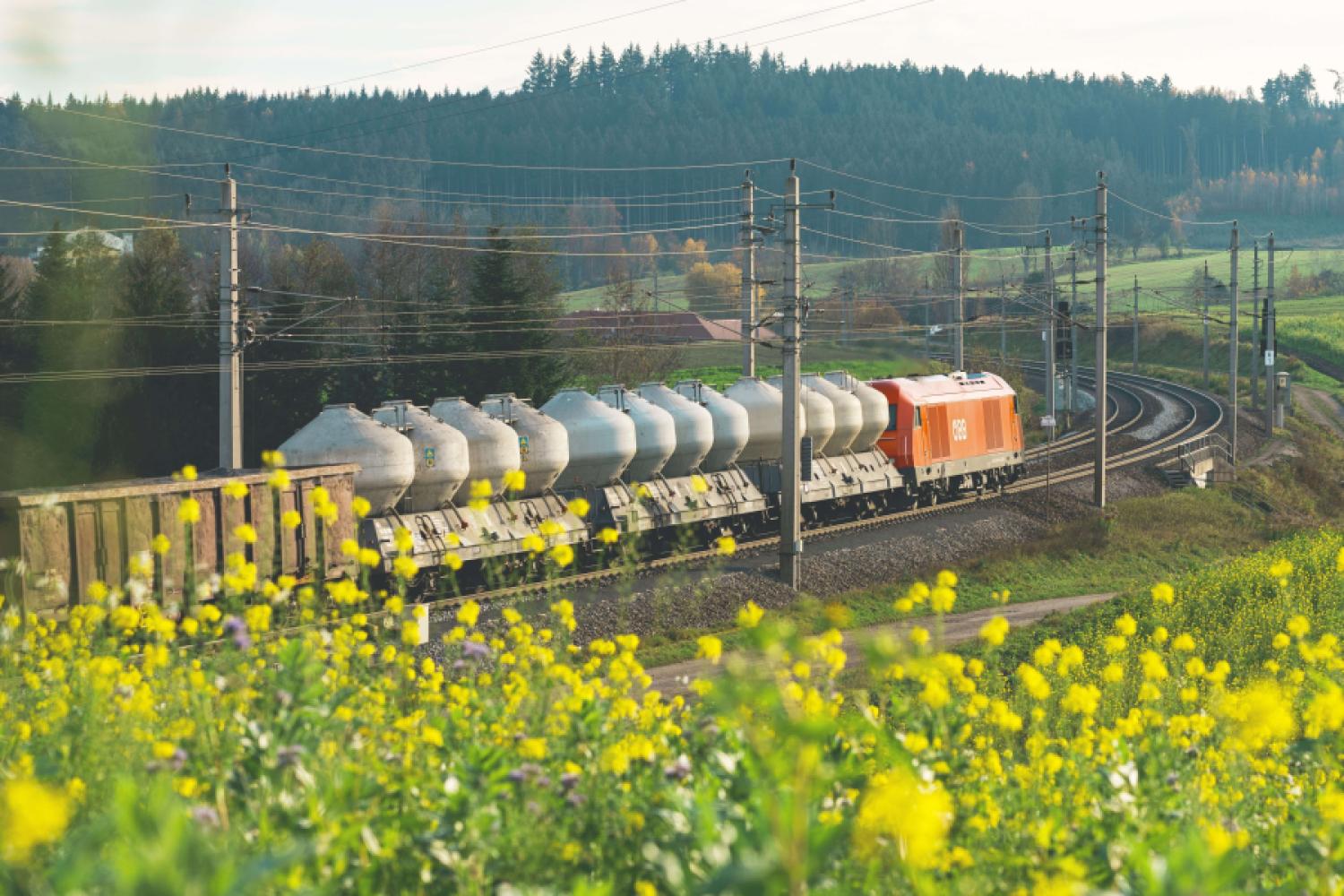With the new "readychain eco-rack," Cologne-based plastic specialist Igus GmbH has developed a modular transport and assembly rack for energy chain systems that saves up to 88 percent in truck transport volume. The rack is made of robust birch multiplex boards and, unlike conventional metal frames, can be dismantled without tools. After assembly at the customer's site, it can be transported back in a space-saving manner and reused. This not only reduces shipping costs and fuel consumption but also contributes to the reduction of CO₂ emissions.
"When we deliver an 'eco-rack,' we need about 1.5 cubic meters of space for a customer's system. After dismantling, it is only 0.17 cubic meters - saving around 88 percent volume compared to a conventional metal rack. Also, the 'eco-rack' is lighter and, unlike the heavy, welded metal
rack, can be disassembled," explains Markus Hüffel, Product Manager Readycable & Readychain at Igus.
The "eco-rack" is part of the "readychain" service, in which Igus delivers pre-assembled energy chains with "chainflex" cables and sensors for predictive maintenance. The tool-free plug assembly on modified Euro pallets creates a customized transport rack that positions the energy chain so that it can be easily connected to machines without additional lifting or rebuilding.
Volume reduction during return transport
After use, the rack can be dismantled into individual parts: The volume decreases from around 1.5 to just 0.17 cubic meters. The lower weight compared to welded metal racks also has a positive effect on transport.
The Readychain service also significantly simplifies logistics. All components, including cables and connectors, are delivered under one article number, reducing the number of transports
and the assembly time by up to 75 percent. Customers save not only time but also coordination effort with different suppliers.
The service is available at 13 locations worldwide, with around 400 pre-assembled systems leaving the Cologne plant weekly. Thanks to high automation, the economical production of individual solutions from a quantity of one is also possible.
Fewer truck transports
With the "eco-rack," Igus aims to use transport resources more efficiently - a growing concern given increasing truck traffic numbers: In 2024, according to the Environmental Protection Agency, around 231 million truck journeys with 2.78 billion tons of goods were conducted. Forecasts from the Ministry of Transport predict an increase of 54 percent by 2051. The "eco-rack" is therefore intended not only to increase logistical efficiency but also to relieve traffic and the environment.
Igus and the Igus Bike RCYL
Founded on October 15, 1964, the plastic specialist Igus continually stands out with surprising ideas. In 2023, for example, the company presented an "Urban Bike" entirely made from recycled plastic. This sustainable bicycle project, now in serial production under the name RCYL, emerged from the aim to turn plastic waste into durable mobility solutions. Through the "igus:bike" platform, the Cologne-based plastic specialist openly shares its concept with other manufacturers, thus promoting the further development of sustainable products in the bicycle industry.
The core product of Igus is components made of high-performance polymers, including energy chains, cables, plain bearings, screw technology, robots, and intelligent sensors. Most of the products are manufactured using the injection molding process, which is also the derivation of the company name: Igus = industrial injection
